Department of History & Government
Research
History and Government Research Projects
Research is an important part of faculty and student development in the Department of History and Government. Faculty continue to engage in activities that will foster and further faculty research and provide opportunities to integrate the content and methods of research into existing and new courses.
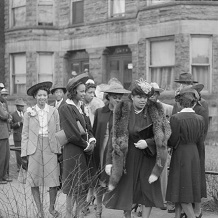 Status: Ongoing
Status: OngoingThe Cambridge History of Black Women in the United States (CHBWUS)
The CHBWUS is a landmark opportunity to reflect seriously on the state of scholarship on Black women in the United States and the Black Atlantic, as well as reshape our thinking about their impact on American society. This “state of the field” five volume series, with ten volume editors from institutions across the United States and Canada, will provide the most recent comprehensive analysis of Black women’s history from the colonial period through the present era. It will showcase the best work of recent years, as well as point the way forward for a new generation of scholars and readers. The five volumes will be published in the U.S. and U.K. in print and digitally for a global audience.
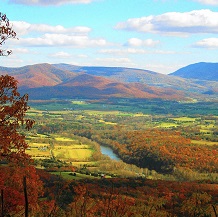 Status: Ongoing
Status: OngoingFree Black Communities in the Shenandoah Valley Historic Resource Study
The Du Bois Center for the Study of the Black Experience received a $63,426 grant from the National Park Service to conduct a study of free Black communities in the Shenandoah Valley in the years immediately preceding the Civil War and into the Reconstruction Era. The NPS study will focus on free Black women and men who lived and worked in THE Civil War and Reconstruction eras in the Shenandoah Valley at Cedar Creek and Belle Grove. This project is led by Dr. Karen Cook Bell and Dr. Festus Cole.
 Status: Ongoing
Status: OngoingHistorical Project on Maryland's Black Communities
The Du Bois Center for the Study of the Black Experience at Bowie State University, under the Directorship of Dr. Karen Cook Bell, received $150,000 in funding from the Andrew W. Mellon Foundation to create a community-focused ethnohistory project that documents and reconstructs the Black experience in Maryland, the home state of Frederick Douglass and Harriet Tubman. This African American ethnohistory project aims to engage in microhistory projects on areas that have been understudied in Maryland and that tell the stories of African Americans through literature, art, and history through interdisciplinary scholarship. The project also includes community engagement fellows, a digital archive and art exhibit.
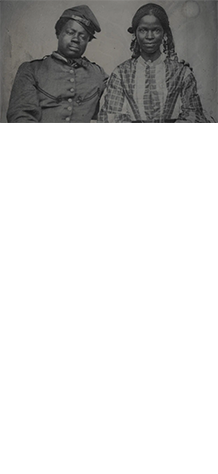 Status: Ongoing
Status: OngoingHistoric Resource Study of African American Communities on the Antietam Battlefield & in Sharpsburg, Maryland
Dr. Tamara Brown, Dr. Roger Davidson, and Professor Gina Lewis received a $77,854 grant from the National Park Service and the Council on Public History to produce a resource study on African American communities on the Antietam Battlefield and in Sharpsburg, Maryland.
This study will tackle the questions of how these Black communities, both enslaved and free, lived prior to the Civil War; responded to their circumstances surrounding the Emancipation Proclamation to the official freeing of Maryland’s enslaved population on November 1, 1864; related to the impact of the affected Black population in the Battle of Antietam; provide detailed genealogical profiles of the African American veterans buried at the Antietam National Cemetery; provide mapping and visual representation of the historical narrative; and proffer the political, socioeconomic, cultural and familial ties to the battlefield, cemetery, and surrounding area into the twentieth and twenty-first centuries.
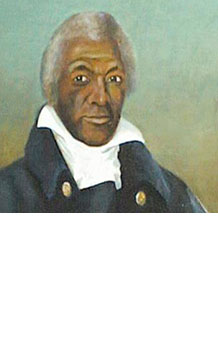 Status: Ongoing
Status: OngoingAfrican Americans during the American Revolution National Park Service Resource Study
Dr. Tamara Brown, Dr. Roger Davidson, and Prof. Gina Lewis were awarded a $220,087 grant from the National Park Service to produce the “Historic Resource Study of the Experience of People of African Descent during the American Revolution.” This regional study will document the historic African American communities associated with national parks located between the states of Virginia and Maine, their relationship to the story of the American Revolution, and site-specific case studies (for Essex National Heritage Area and Salem Maritime National Historic Site, Minute Man National Historical Park, and Valley Forge National Historical Park).
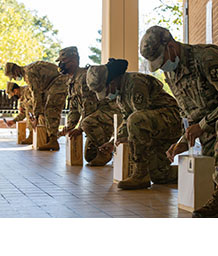 Status: Ongoing
Status: OngoingInterviews with Veterans of the Vietnam and Iraq Wars
The Department of History and Government received an $82,655 grant from the National Endowment for the Humanities (NEH) to train student veterans and advanced ROTC cadets to interview veterans of the Vietnam War and Iraq War on experiences related to service, sacrifice, and reintegration. With issues of war and peace in the news, this grant serves as a timely opportunity to remember the sacrifices of those who served our nation. Dr. Karen Cook Bell serves as Project Director and Dr. Roger Davidson is the Co-PI.
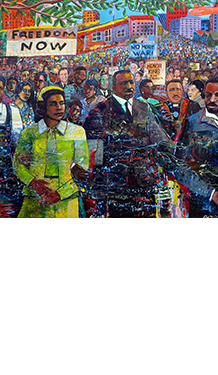 Status: Continuous
Status: ContinuousEthnohistories: African American Communities in Context
Dr. David Reed and Professor Gina Lewis received a $162,000 grant from the National Park Service for his “Ethnohistories: African American Communities in Context” research grant (with Co-PI, Gina Lewis). This project investigates the history of the African American community to the C & O Canal, with an interdisciplinary team of historians, artists, writers and anthropologist from Great Falls to West Virginia with emphasis on “hidden” black townships and institutions including churches, barbershops, schools, funeral homes, and restaurants (1850 – Present).
Dr. Reed is also working on a major study of Dr. Rayford W. Logan, one of the foremost historians and Black intellectuals of the 20th century entitled “What the Negro ‘Still’ Wants: Rayford Whittingham Logan Revisited [1944-2023]."
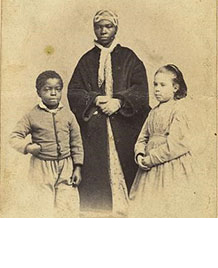 Status: Data Collection
Status: Data CollectionUsing Digital History to Map Black Women’s History
Dr. Karen Cook Bell received a $5,500 C2ARES Grant for her project “Using Digital History to Map Black Women’s History.” Student-researchers transcribed records of Louisiana Corp d’Afrique Hospital which was created during the Civil War and are creating a database on Black women, war, and disease.
Currently building datasets, digital media, and archives, and exploring methodologies of Black feminist praxis in the digital.
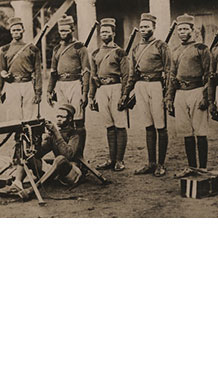 Status: Continuous
Status: ContinuousResearch enlisted members of Commonwealth labor battalions and the Carrier Corps
Dr. Festus Cole has joined a team of researchers and historians leading the search for names of enlisted members of Commonwealth labor battalions and the Carrier Corps, who served and died during services in the Cameroons, Togoland, German East Africa, and Mesopotamia during World War I. Many of these carriers and soldiers were either commemorated unequally, or not commemorated by name, and possibly, never commemorated. These problems are compounded by a dearth of casualty lists and known places of burial. A Non-Commemorated Project, spearheaded by the Commonwealth War Graves Commission (CWGC), the Special Committee will be working on four regions around the world where these anomalies in commemoration exist. Where such inequalities are identified, the Committee will produce a set of recommendations designed to assist and guide the CWGC in responding to them.
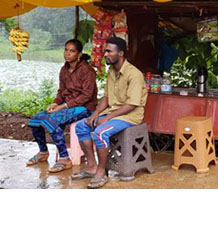 Status: Ongoing
Status: OngoingSiddis: African diaspora in India
Dr. Sumanth Reddy received a $7000 C2ARES research grant to examine topophilia (sense of place) among the Siddi people of India. Siddis who number around 50,000 people in India are descendants of Bantu populations of East and Central Africa. They have lived in India for more than a millennia. Dr. Reddy has published one article from his fieldwork in India and continues to work on other academic manuscripts examining a sense of place and belonging among the Siddi people.
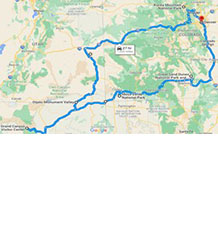 Status: Data Collection
Status: Data CollectionAfrican American Perspectives on National Parks
Dr. Sumanth Reddy received a $14,000 research grant from the American Association of Geographers (AAG) to conduct a camping and hiking trip with his students to examine HBCU student perspectives on camping, hiking, and our national park system. Dr. Reddy took 10 students on a 10-day camping and hiking trip to several national parks in the Four Corners Region in summer 2022. Through questionnaires and conversations, he will try to understand his students’ opinions about the national park system and the reasons for their low participation rates in exploring these places.
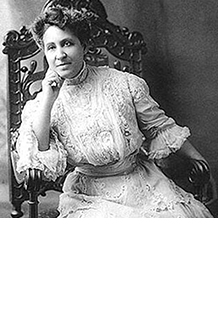 Status: Continuous
Status: ContinuousTerrell Family Research
Dr. Sammye Miller is engaged in a number of research projects related to Mary Church Terrell, Judge Robert H. Terrell, and Phyllis Terrell Langston (daughter of Robert H. Terrell and Mary Church Terrell). The Terrell family is one of the most significant elite Black families in 20th century America. Judge Robert H. Terrell was the first Black Municipal Judge of the District of Columbia. Mary Church Terrell left behind a voluminous record of her life and activism, which historians since the 1980s have mined to produce critical analysis of Terrell. Dr. Miller is one of the very few to have been given personal papers by the Terrell family. He is editing a volume on the speeches of Judge Robert H. Terrell, the diary of Phyllis Terrell Langston, and completing a biography of Judge Robert H. Terrell. Dr. Miller is also editing "A Reader of 20th Century Messianic Hopes."
